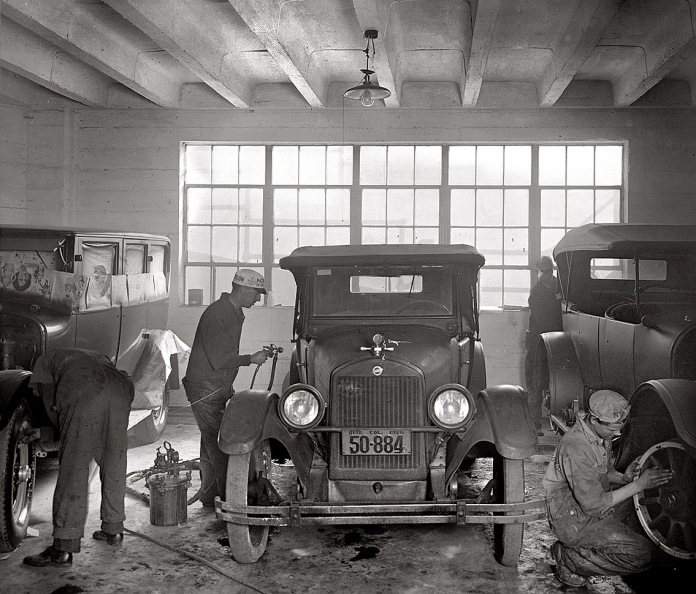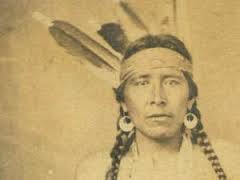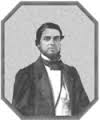
1925
“After twenty-three years of creating sandpaper and other industrial abrasives, the Minnesota Mining and Manufacturing Company (3M) moves into a new market with its invention of masking tape. Of 3M’s 55,000 products today, the best known are probably masking tape, Scotch Tape, Thinsulate, and Post-it Notes.” *
Below is a condensed history of 3M in the years that led up to the invention of masking tape.
“William L. McKnight joined Minnesota Mining and Manufacturing Co. in 1907 as an assistant bookkeeper. He quickly rose through the company, becoming president in 1929 and chairman of the board in 1949. He is known for shaping the company’s culture of innovation and collaboration. In 1910, major investor Lucius Ordway established 3M’s headquarters in St. Paul, Minnesota, where it remains today. We created the world’s first waterproof sandpaper, which reduced airborne dust during automobile manufacturing, in the early 1920s. A second major milestone occurred in 1925 when Richard G. Drew, a young lab assistant, invented masking tape — an innovative step toward diversification and the first of many Scotch® Pressure-Sensitive Tapes.” **
But what of the man, Richard Gurley Drew, who actually developed masking tape?
“Scotch tape was invented in 1930 by banjo-playing 3M engineer Richard Drew. Scotch tape was the world’s first transparent adhesive tape. Drew also invented the first masking tape in 1925 — a 2-inch-wide tan paper tape with a pressure sensitive adhesive backing.
In 1923, Drew joined the 3M company located in St. Paul, Minnesota. At the time, 3M only made sandpaper. Drew was product testing 3M’s Wetordry brand sandpaper at a local auto body shop, when he noticed that auto painters were having a hard time making clean dividing lines on two-color paint jobs. Richard Drew was inspired to invent the world’s first masking tape in 1925, as a solution to the auto painters’ dilemma.
The brandname Scotch came about while Drew was testing his first masking tape to determine how much adhesive he needed to add. The body shop painter became frustrated with the sample masking tape and exclaimed, “Take this tape back to those Scotch bosses of yours and tell them to put more adhesive on it!” The name was soon applied to the entire line of 3M tapes.” ***
Good G-d, it’s easy to see Your image in a well-rounded man like Richard Gurley Drew! We give thanks for his scientific persistence, his love of rowdy banjo playing, and a good looking two-toned car! Will You bless him and his literal and figurative heirs to reflect so practically Your creative Image?
In particular, we give thanks that he did not take offense when his product failed at the auto shop. He did not not take offense when the workman used a racial slur “Scotch”, (extremely thrifty or cheap), to malign both his product and his company. He listened to their needs beyond their words, and responded.
We give You praise for this image! May we learn from the patience of this inventor to reserve judgment of another’s lack of tactfulness, or use of salty language. May we open the gift of criticism we receive, and look past the ugly wrapping paper!
Will You give Minnesotans past, present, and future this same humility to accept criticism? Will You forgive the harshness of our words even if spoken with good intent? When and where we have used racial slurs we have not only stereotyped each other, but Your Image invention of those people groups. Have mercy: then, now, and into our future.
We thank You today for 3M! We thank You for its dedication to innovation through nurturing the inspirations of its employees. We thank You for its model of balancing collaborative and individual creativity. We thank You for its model of relational management, decades ahead of its time, that saw their employees as whole people. They saw that when Richard Drew played the banjo and was excited by a showy car that he would be a better scientist.
In response, may we ever be grateful for their reflection of Your Image in this, and foster wholeness in our business! will You forgive us where we have only seen our employees as faceless “human resources”? Will You forgive our lack of humility when and where we have lost that the spirit of invention exists to better serve our fellow man, and indirectly to serve You? Amen!
…Then he will answer them, saying, ‘Truly, I say to you, as you did not do it to one of the least of these, you did not do it to me.’ ESV Matthew 25:45****
* http://www.mnhs.org/about/dipity_timeline.htm
**See “A Rich History of Ideas” to peruse the many inventions created by 3M that have changed the way we live. http://solutions.3m.com/wps/portal/3M/en_US/3M-Company/Information/Resources/History/
***See “The History of Scotch Tape” by Mary Bellis https://www.thoughtco.com/history-of-scotch-tape-1992403
****http://biblehub.com/matthew/25-45.htm

